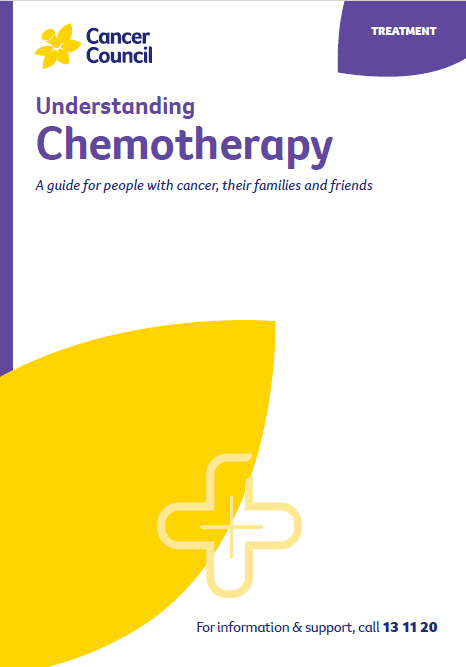- Home
- Vaginal cancer
- Treatment
- Chemotherapy
Chemotherapy for vaginal cancer
Chemotherapy uses drugs to kill cancer cells or slow their growth. It may be used if the vaginal cancer is advanced or returns after treatment. Chemotherapy may be combined with radiation therapy (known as chemoradiation or chemoradiotherapy).
Learn more about:
How is it given?
The drugs are usually given by injection into a vein (intravenously). You will usually have several treatment sessions, with rest periods in between. Together, the session and rest period are called a cycle. Treatment is usually given during day visits to a hospital or clinic as an outpatient. Rarely, you may need to stay in hospital for a few nights.
Side effects of chemotherapy
There are many different chemotherapy drugs. The side effects will vary depending on the drugs you are given, the dose and how you respond. Chemotherapy for vaginal cancer may also increase any skin soreness caused by radiation therapy.
For more on this, see our general section on Managing chemotherapy side effects.
→ READ MORE: Managing side effects
Video: What is chemotherapy?
Learn more about chemotherapy in this short video.
Podcast: Making Treatment Decisions
Listen now
More resources
Prof Alison Brand, Director, Gynaecological Oncology, Westmead Hospital, NSW; Gemma Busuttil, Radiation Therapist, Crown Princess Mary Cancer Centre, Westmead Hospital, NSW; Kim Hobbs, Clinical Specialist Social Worker, Gynaecological Cancer, Westmead Hospital, NSW; Dr Ming-Yin Lin, Radiation Oncologist, Peter MacCallum Cancer Centre, VIC; Dr Lisa Mackenzie, Clinical Psychologist Registrar, HNE Centre for Gynaecological Cancer, Hunter New England Local Health District, NSW; Anne Mellon, CNC – Gynaecological Oncology, HNE Centre for Gynaecological Cancer, Hunter New England Local Health District, NSW; A/Prof Tarek Meniawy, Medical Oncologist, Sir Charles Gairdner Hospital and The University of Western Australia, WA; Dr Archana Rao, Gynaecological Oncologist, Senior Staff Specialist, Royal Brisbane and Women’s Hospital, QLD; Tara Redemski, Senior Physiotherapist – Cancer and Blood Disorders, Gold Coast University Hospital, QLD; Angela Steenholdt, Consumer; Maria Veale, 13 11 20 Consultant, Cancer Council QLD.
View the Cancer Council NSW editorial policy.
View all publications or call 13 11 20 for free printed copies.
Need to talk?
Support services
Coping with cancer?
Speak to a health professional or to someone who has been there, or find a support group or forum
Looking for transport, accommodation or home help?
Practical advice and support during and after treatment
Cancer information
Common questions about chemotherapy
Find out how chemotherapy works, whether it hurts, and other answers
Chemotherapy side effects
How to manage fatigue, nausea and other common side effects

